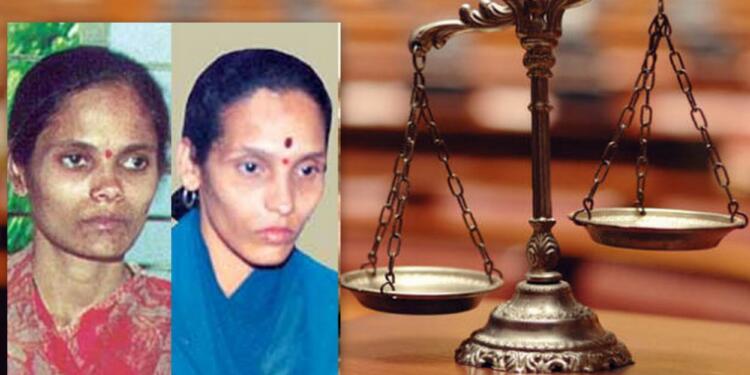Consider the scenario of a man killing almost all members of his family! He will be jailed for the crime. Later, he will be hanged to death or be awarded life imprisonment. On the contrary, if a woman does the same, she is jailed for a certain period of time. No, don’t even think of more. Later, she may be acquitted and pardoned by the Judiciary despite committing such a heinous crime. From this example, it could be easily understood how the women in India enjoy judicial favouritism.
Women in India are entitled to ‘justice’ without even considering what the other side has to say. Undoubtedly, women and girls are subjected to physical, sexual and psychological abuse that cuts across lines of income, class and culture, but how is it justified to claim that women cannot be culprits. Even if they are found guilty, they are acquitted or forgiven for their crime, unlike men who are jailed for life and hanged to death in most cases.
Maharashtra Government’s negligence saved Renuka and Seema
In the most recent development, the Bombay High Court went back and forth to arrive at a decision on the death sentences awarded to Renuka Shinde and Seema Gavit. It has commuted the decision of death sentence to life imprisonment. The HC bench, comprising of Justice Sarang Kotwal and Justice Nitin M. Jamdar, however, denied releasing them without any delay.
The bench observed, “[The] crimes committed by [the] petitioners are heinous and beyond words to condemn.”
The court’s ruling came after the sisters’ request to commute their death sentences to life imprisonment as the Maharashtra government has been delaying any action on their mercy petition for around eight years.
The plea, filed through advocate Aniket Vagal on August 19, 2014, stated that “The delay of nearly eight years in deciding on the mercy plea was unfair, cruel, excessive and arbitrary, and the same had caused them immense mental torture, emotional and physical agony.”
The two sisters– Renuka, alias Kiran Shinde, and Seema, alias Devki Gavit along with their mother Anjanabai were tried by the Additional Sessions Judge in Kolhapur in 1997 for kidnapping 13 children, attempting to kidnap another and murdering nine of the 13 children between June 1990 and October 1996. They were sentenced to death on June 28, 2001. However, Anjanabai had died of natural causes by the time the Bombay High Court sustained the conviction on September 8, 2004. Two years later, on August 31, the Supreme Court too confirmed the death sentence.
Kumari Chandra- another accused acquitted
If you are of the thought that this was only one case where the murderer women have been pardoned, you’re wrong. We have so many cases in line to witness the ‘soft-corner’ on judicial grounds for women.
In another instance, the Rajasthan High Court had acquitted a woman named Kumari Chandra who was accused of murdering a child. She was released on the ground on the grounds of a medical problem. She supposedly was suffering from insanity triggered by premenstrual stress syndrome (PMS) at the time of committing the crime.
A copy of the court judgment read, “In the present case, not one but three doctors, who treated her on different occasions, have deposed in favour of such plea of insanity set up by the defence.”
“Although the law has not much developed in India as to the premenstrual stress syndrome (PMS) being set up as the defence of insanity, yet the accused has a right to plead and probabilize such defence to show that she was suffering from ‘premenstrual stress syndrome’ when the crime was committed and because of her such condition, the offence that she committed was an involuntary act on her part,” stated the judgment.
Chandra allegedly had pushed three children, two boys and a girl, into a well in August 1981. While the one boy had drowned, people managed to save the other two children.
Interestingly, the first female hanging house was built in Mathura jail almost 150 years ago, but no convict has been hanged there since Independence. Based on the above instances, it is safe to say that the court is so keen on protecting the dignity of women that it fails to recognize that everyone is equal in the eyes of law.

























